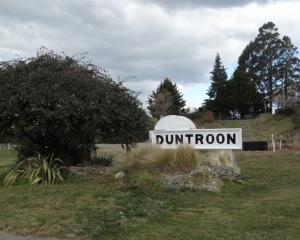Under the agreement, up to 100,000ha might eventually be set aside for protection in the Mackenzie, Ohau and Omarama Basins in a trade-off for more irrigation and tourism development in the future.
The agreement - costing about $200,000 to prepare and covering about 269,000ha from Lindis Pass to Burkes Pass in the ''Mackenzie Country'' - was made public in Twizel yesterday.
It proposes setting up a Mackenzie Country trust to administer and fund the agreement, with the Government passing empowering legislation to establish it and providing special funding.
Up to $3.7 million a year could be needed from a mixture of funding sources to meet the cost of protecting the 100,000ha, which includes about 26,000ha already under some form of protection.
Some of that cost would be funding assistance for property owners who take land out for protection that has an impact on the viability of their properties.
Development would still be covered by the Resource Management Act, but the proposed legislation would allow special consideration of any resource consents applied for with the trust's support.
Land to be protected or irrigated is not identified. That would be a task for the new trust.
The agreement was signed by 22 organisations who participated in a ''shared vision forum'', which prepared it under the umbrella of the Mackenzie Sustainable Futures Trust.
These included resident, farming, conservation, environmental, tourism, other community and recreational groups. It was hoped the agreement and formation of the trust would end past conflicts between development, particularly irrigation, and protection of an area special in New Zealand.
Specifically, the agreement looks at three major issues: agriculture; tourism; and indigenous biodiversity-landscape-recreation and other land protection values.
The agreement will go to Minister for the Environment Amy Adams, asking her to note it represents a strategy between the community and national organisations that have a strong stake in the Mackenzie Country.
It asks her to introduce legislation to establish and empower the Mackenzie Country trust along the lines outlined in the agreement - and provide funding.
Seven trustees are proposed, jointly appointed by the ministers of agriculture, environment and maori affairs, but with input from district and regional councils and groups who signed the agreement.
Protecting areas would be through a voluntary ''joint management agreement'' particular to the Mackenzie trust and negotiated with individual landowners.
The joint management agreement could cover part or all of a property.
The agreement recognised farming in the Mackenzie Country was volatile with low profitability. It also accepted irrigation could make farming more viable and lead to improved rabbit, wilding pine and noxious plant control, as well as encouraging farmers to protect land.
Up to 26,000ha is proposed for irrigation in the agreement.
The main players yesterday said the agreement was a major achievement, but also that it was only the first step.
North Otago Federated Farmers high-country chairman Simon Williamson said it was a ''definite way forward'', but the key was ''where it goes from here''.
''It is going to take some fairly serious funding to get it off the ground,'' he said.
Other issues included membership of the trust, funding its work, getting the technical information to make decisions and identifying areas for conservation and development.
He did not see the agreement as a win for one sector or the other - it was a collaborative agreement and had to work for everyone.
Minister of Conservation Nick Smith said the challenge for the future was ensuring all parties worked together to implement the agreement.
It represented ''a significant change'' in the way issues would be resolved, rather than the traditional confrontational approach.
It was ''a wonderfully balanced document'' that provided a shared vision as to the future of the region.
Waitaki Development Board director Mike Neilson described the agreement as ''an outstanding achievement''.
''I'm excited about the future for the people of the Mackenzie Country,'' he said.
Environmental Defence Society chairman Gary Taylor said the agreement was ''unique in New Zealand'' by establishing a trust to negotiate joint management agreements with private landowners and high-country run-holders to protect significant areas.
Reaching agreement had posed some challenges, such as getting beyond old enmities and position-stating into constructive dialogue.
''The ball is now in the Government's court to introduce the recommended legislation to create the Mackenzie Country trust, and make a contribution to funding its work,'' he said.
Labour Party conservation spokeswoman Ruth Dyson said the agreement was focused on freeing up land for development rather than conservation.
The proposed trust was unnecessary, and its purpose and coverage areas unclear, she said.
Forest and Bird said the move to protect 100,000ha was long overdue and ''just in time to give future generations of New Zealanders a chance to know a precious and remarkable natural landscape''.
Its Canterbury-West Coast field officer, Jen Miller, said the real test would come during the next phase, when a mechanism was developed to ensure the 100,000ha was protected.
''The hard part will be translating what's been acknowledged by all the parties - that the Mackenzie is far too precious to lose - into reality,'' she said.
Otago University-based ecologist and Forest and Bird conservation ambassador Sir Alan Mark said the agreement was a fantastic step forward.












